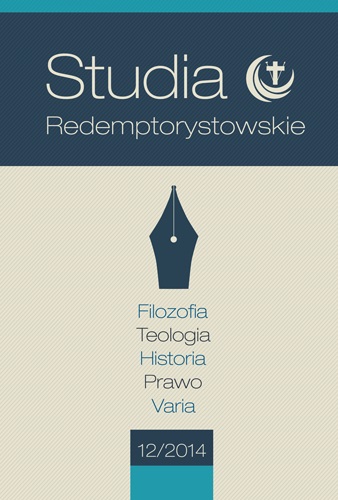Wpływ rytmu snu i czuwania na aktywność fizyczną i umysłową oraz życie duchowe cenobitów na podstawie Reguły Benedykta z Nursji
Rhythm of sleep and wakefulness and its impact on physical activity and mental and spiritual life cenobites under Rule of Benedict of Nursia
Author(s): Olga CyrekSubject(s): Anthropology
Published by: Warszawska Prowincja Redemptorystów
Keywords: Sleep; standby; day and night activity; monastic rule; cenobites
Summary/Abstract: The article describes the rhythm of sleep and wakefulness cenobites abiding rule of Benedict of Nursia (d. 547). The activity day and night rest were dependent on the circadian rhythm, the succession of night and day. Monks on the basis of the monastic rule all activities performed within the specified time. This allows uniform and led a quiet existence, which was not contrary to the natural human capabilities. The monks appreciated the importance of sleep, which devoted eight hours a day. Rest in order to regenerate their forces needed to operate them. However, do not sleep too deeply, but have always been ready to rise to the prayers. Throughout the day ascetics or alternately undertook physical activity and mental or spiritual. In this way, avoid fatigue and laziness, but could still mobilize for action. Leading a regular life, they have a healthy body and soul.
Journal: Studia Redemptorystowskie
- Issue Year: 2014
- Issue No: 12
- Page Range: 517-536
- Page Count: 19
- Language: Polish

